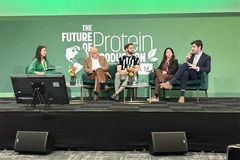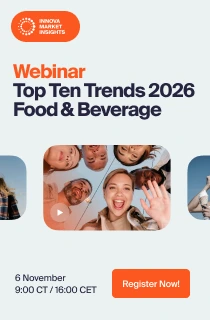Survey: Majority of UK Adults Support Sugary Drink Ban in Schools
06 May 2014 --- More than half of adults would support a ban on sugary drinks in UK schools, according to a poll of 1,000 British adults. The survey, which was carried out for BBC 5Live, also found 40% of people would support a tax on sugary drinks.
At present government policy bans the sale of fizzy drinks, crisps and sweets in local authority-run schools, but the decision about whether children can bring these items into schools is left up to each individual head teacher. In addition, these rules do not apply to academies and free schools in the UK, which currently make up more than half of state secondary schools.
Current government policy states that schools (under local authority control) should “remove drinks which have no nutritional value and can cause tooth decay”. It also states that schools “should encourage children to drink water or drinks such as milk and fruit or vegetable juices, which provide important nutrients such as calcium, vitamin C and carotenoids.”
The Populus poll suggests the majority of people in the UK think the government should take a stronger stance on sugary foods and drinks in schools. It also showed that 60% of adults wanted supermarkets to stop promotions on unhealthy food products.

The results follow calls from earlier this year for the government to implement a sugar reduction strategy – similar to that which was launched for salt reduction, some years ago. There have also been calls for a sugar tax, and greater education programmes for consumers to understand the levels of sugar in healthier beverages, as an example, such as smoothies and fruit juices.
“We have known about the health risks of sugar for years and yet nothing has been done,” said Professor Graham MacGregor, chairman of Action on Sugar and co-author of a recent commentary on this subject in the Lancet. “We are calling the UK Government to reduce sugar in foods by any means necessary. We strongly urge the Department of Health and the Government to initiate a sugar reduction programme now by forcing the industry to slowly reduce the huge amount of sugar added by the food industry across the board, similar to salt. Unless they act now, obesity and diabetes are going to completely overwhelm the NHS.”
CASH teamed up with a raft of medical figures earlier this year to launch the campaign group, Action on Sugar. In January the group started its calls for moves to gradually reduce the amount of added sugar in good and soft drinks, and it claimed a 20 to 30% reduction would be ‘easily achievable’ within three to five years.
Others are also campaigning to reduce sugar in foods. Earlier this year the World Health Organization (WHO) launched a public consultation on the draft sugar intake guidelines. Dr Francesco Branca, the director of WHO’s Department for Nutrition for Health and Development explained that free sugars are hidden in foods and we don’t see them. “Current WHO guidelines indicate that we should not exceed the limit of 10% of our total energy,” she said. “Now this for an adult means approximately the equivalent of 50g sugar per day.”














